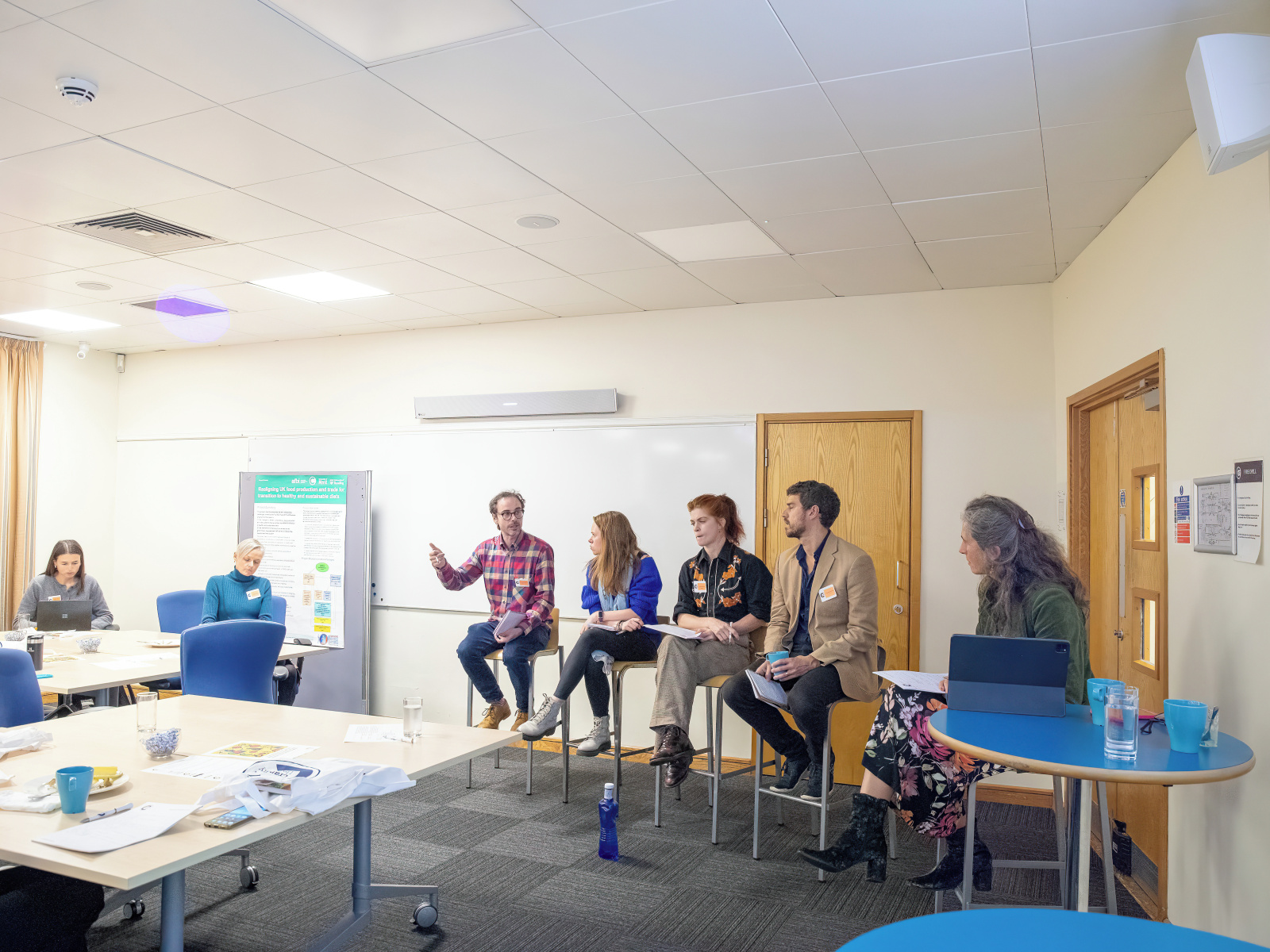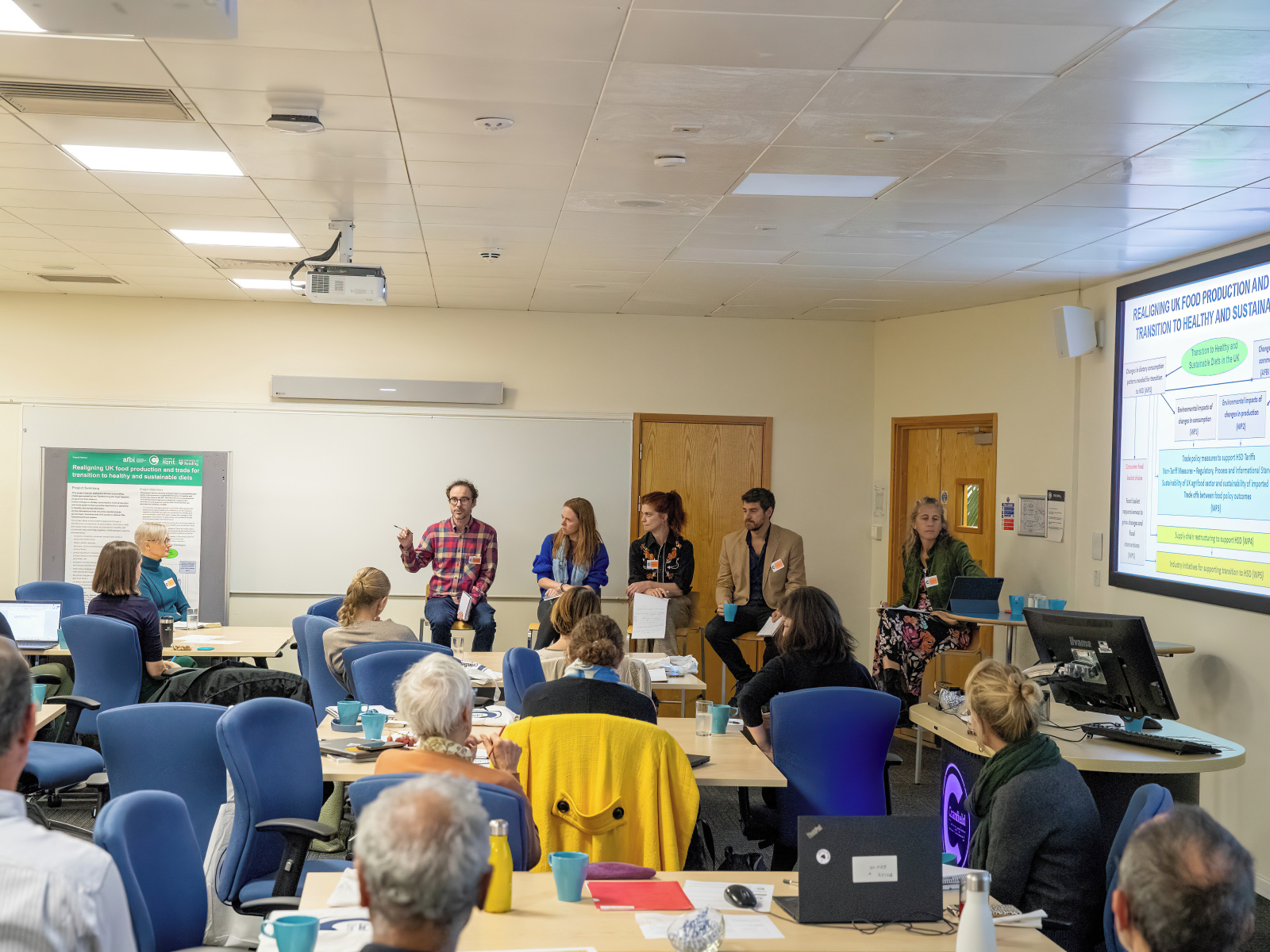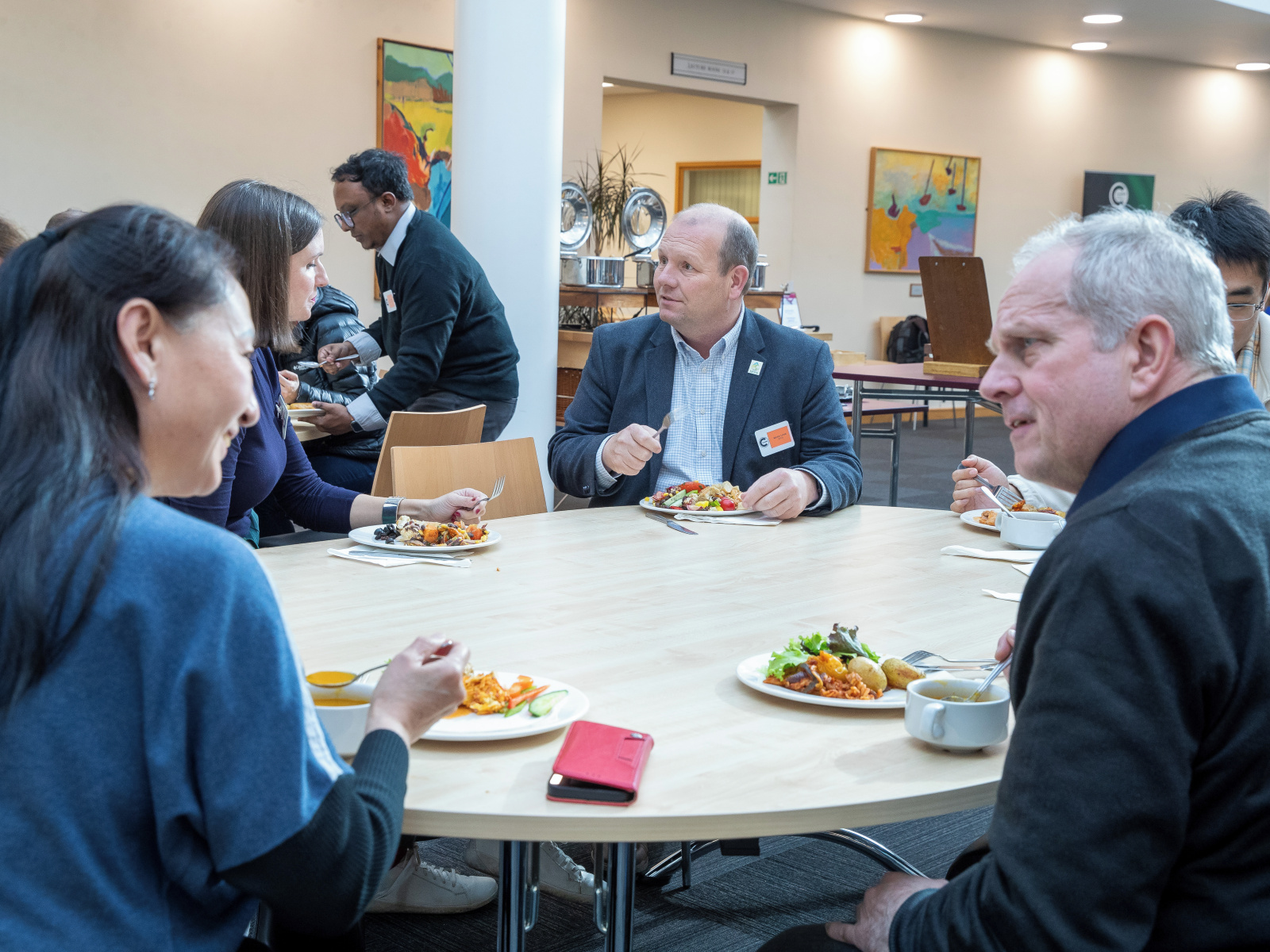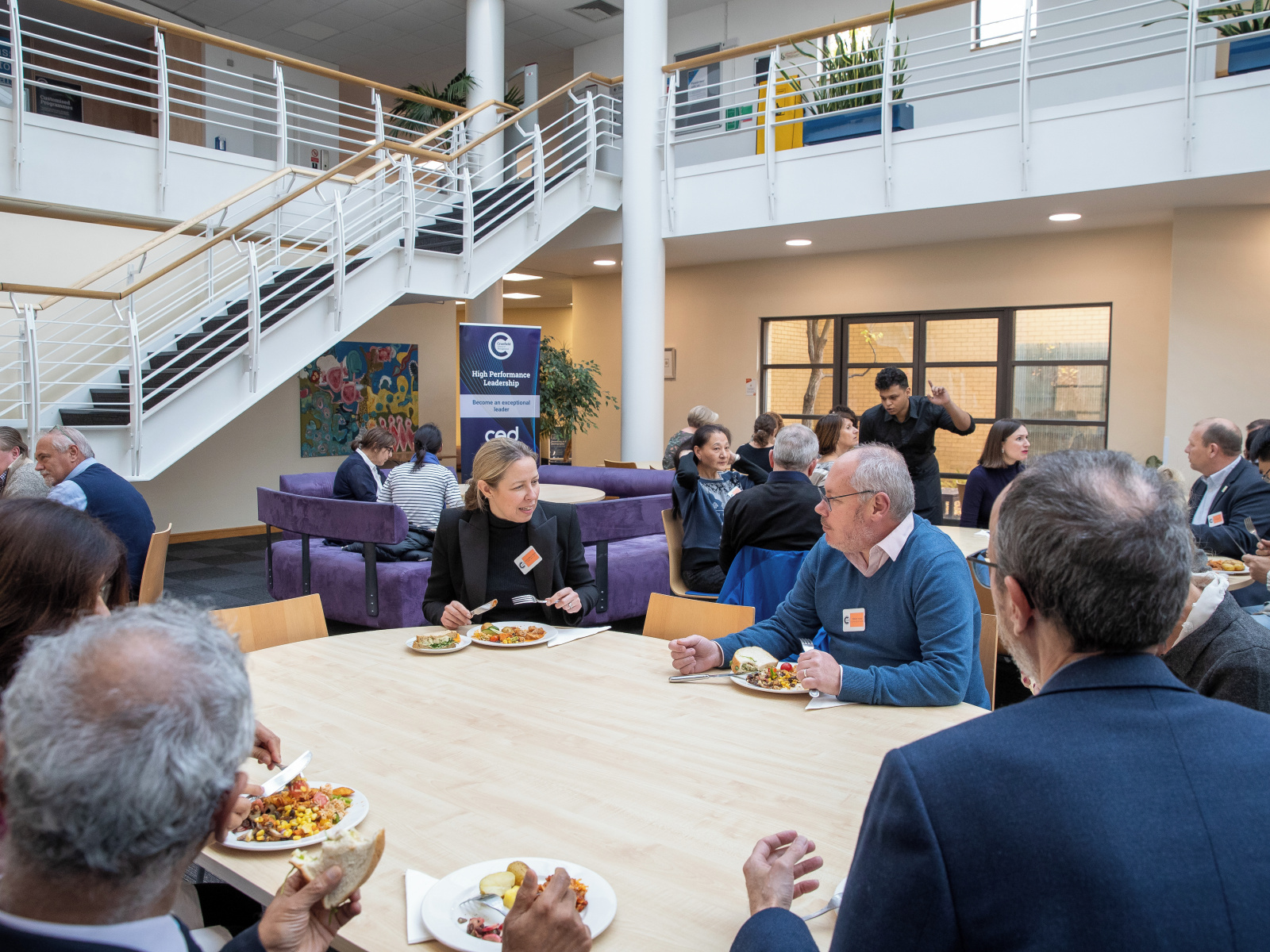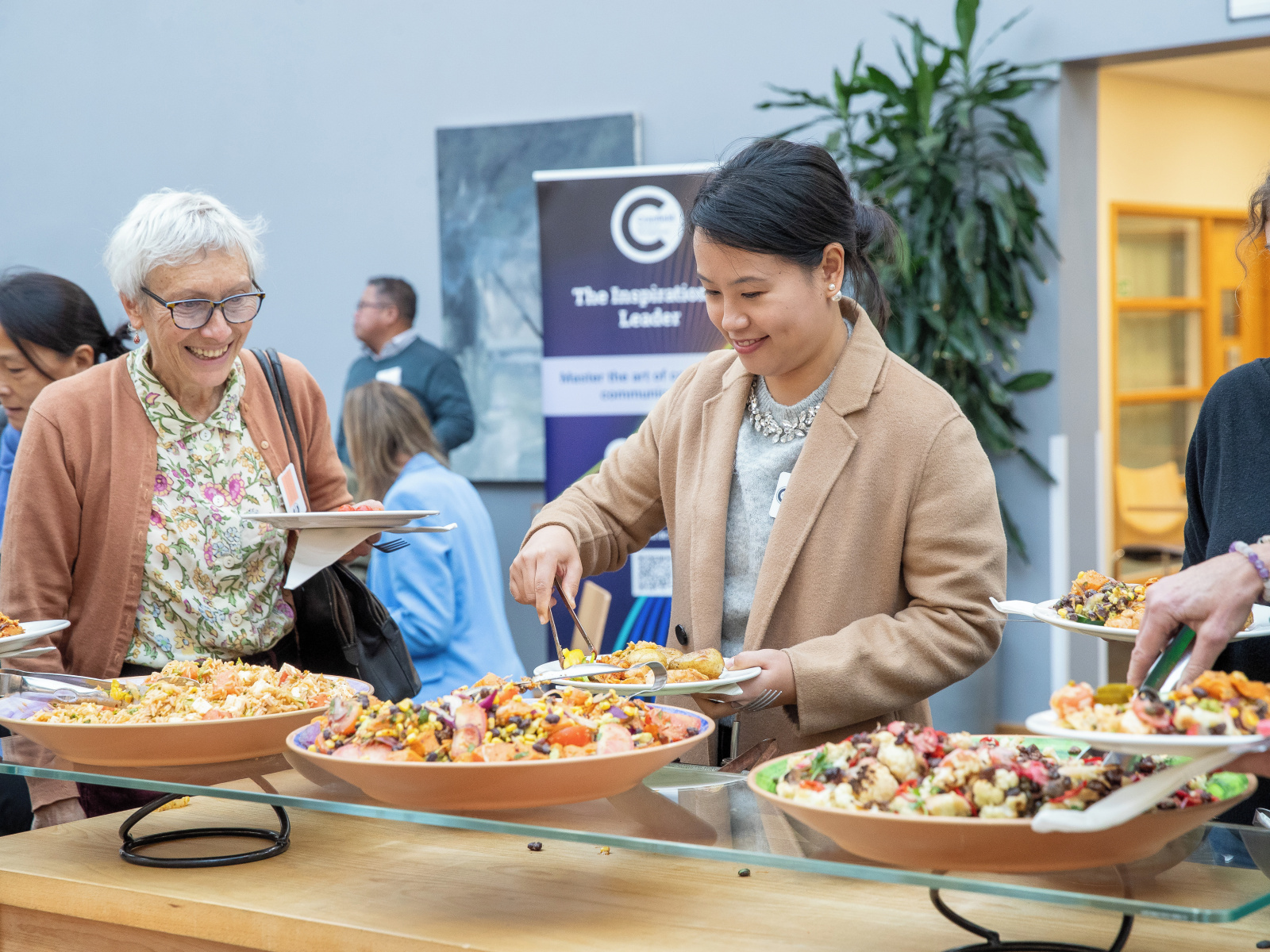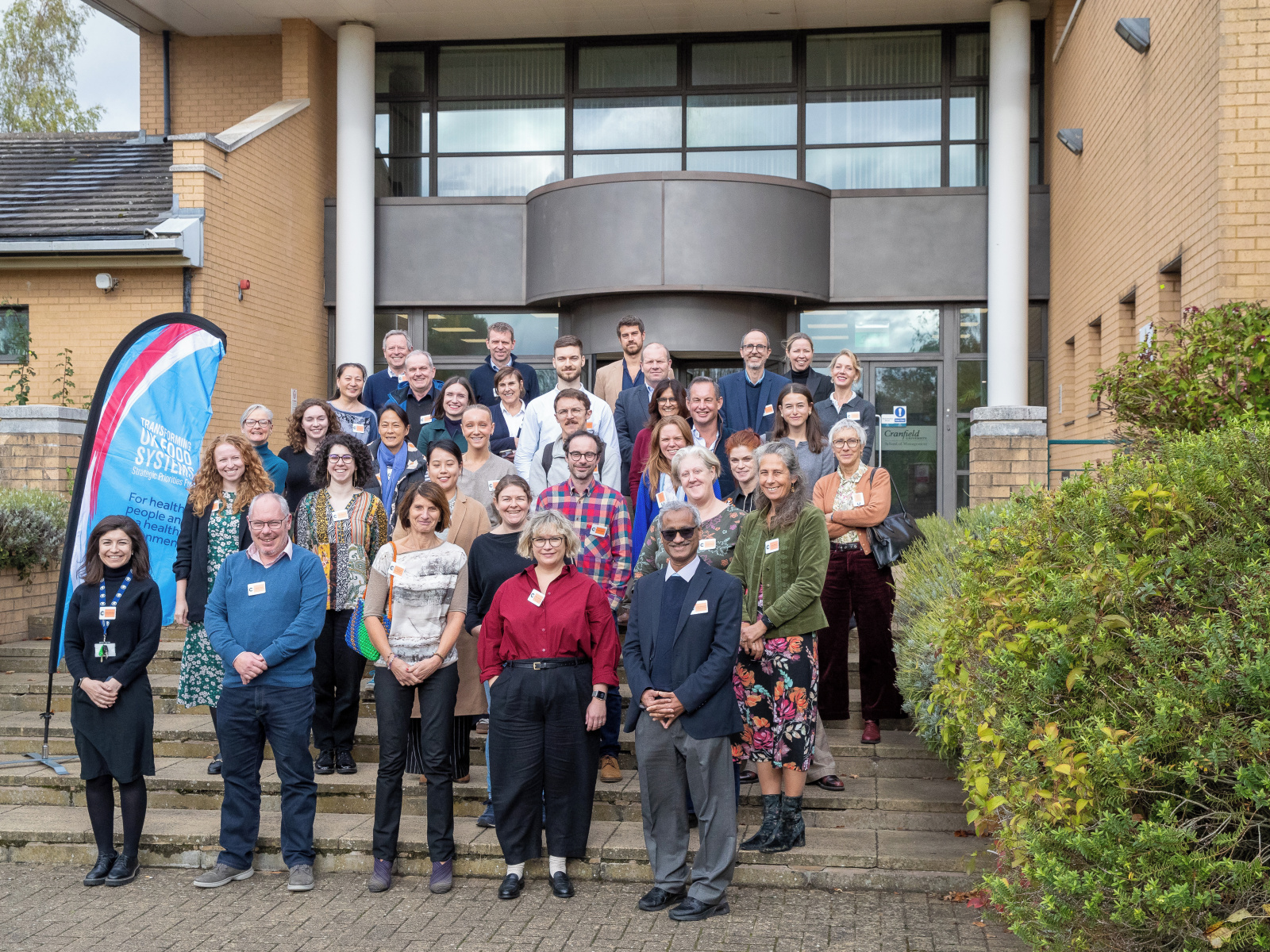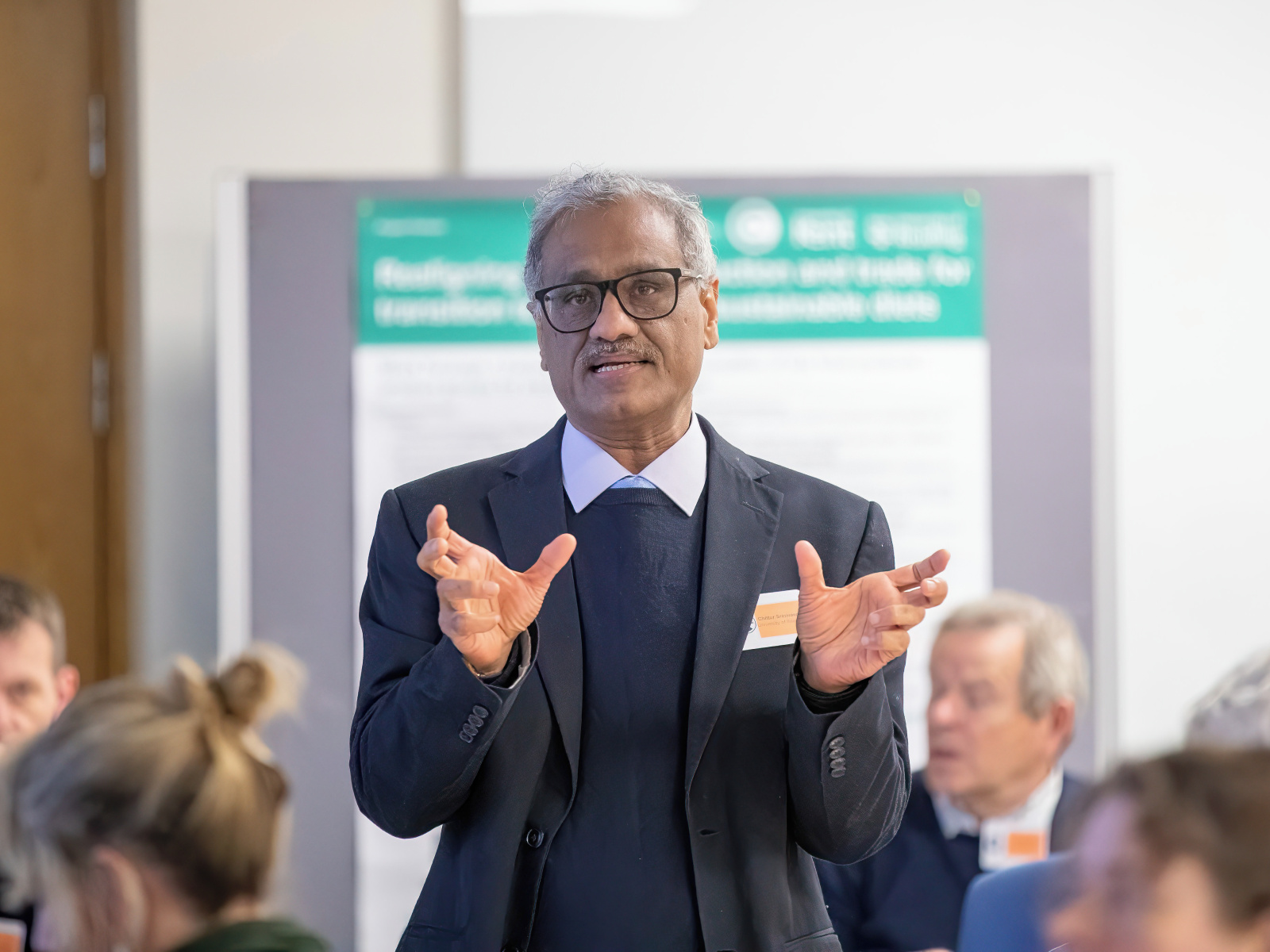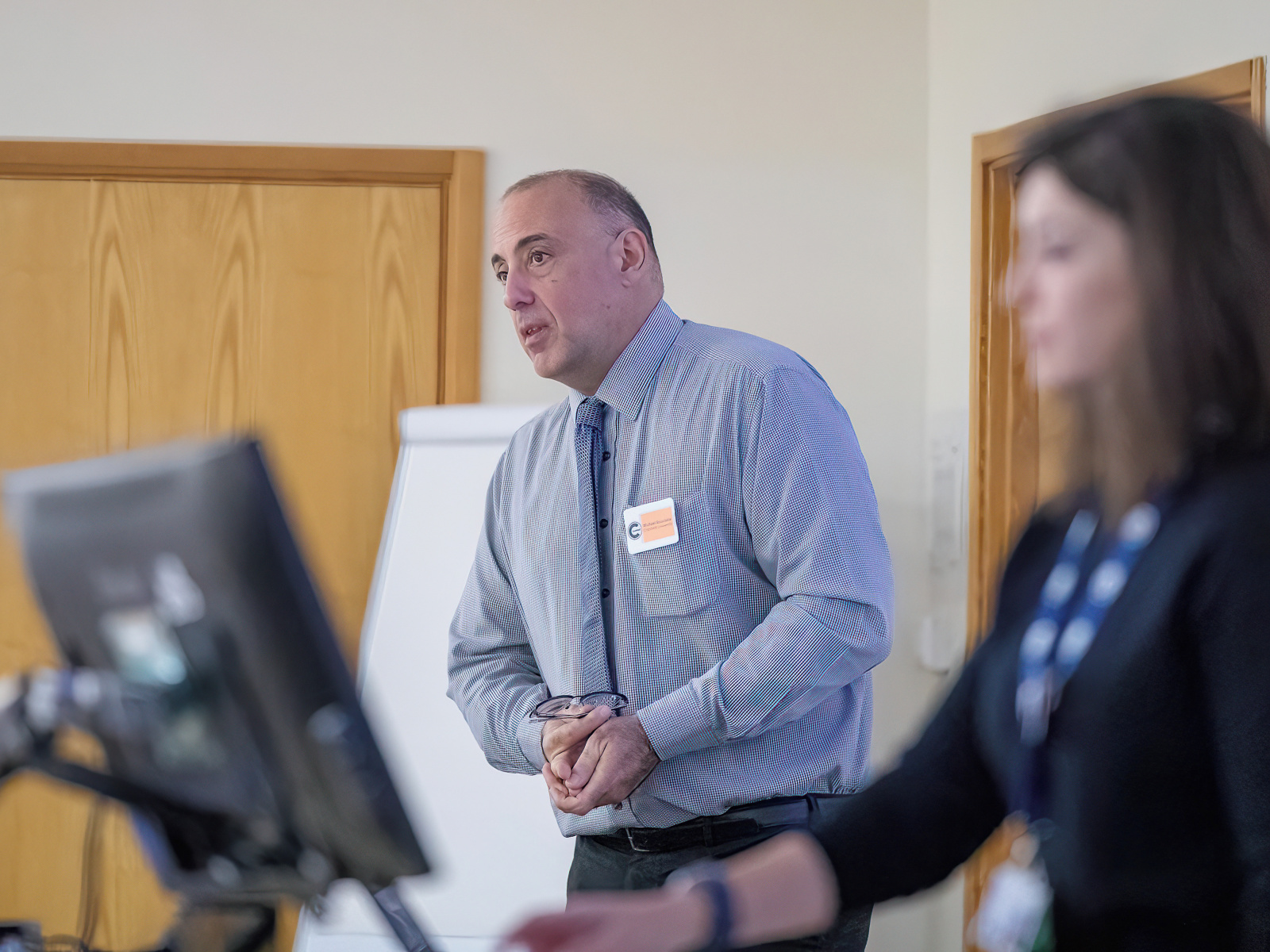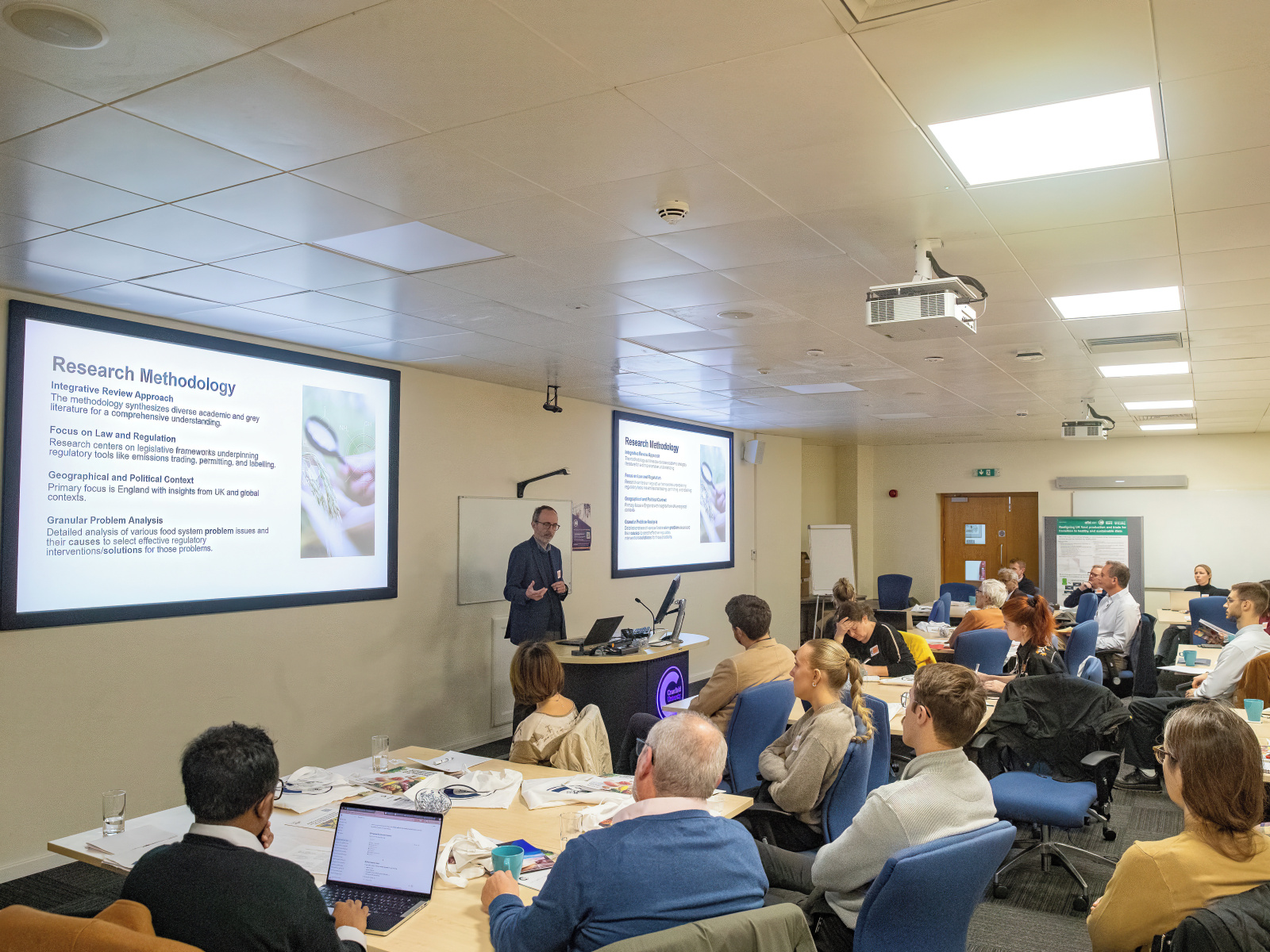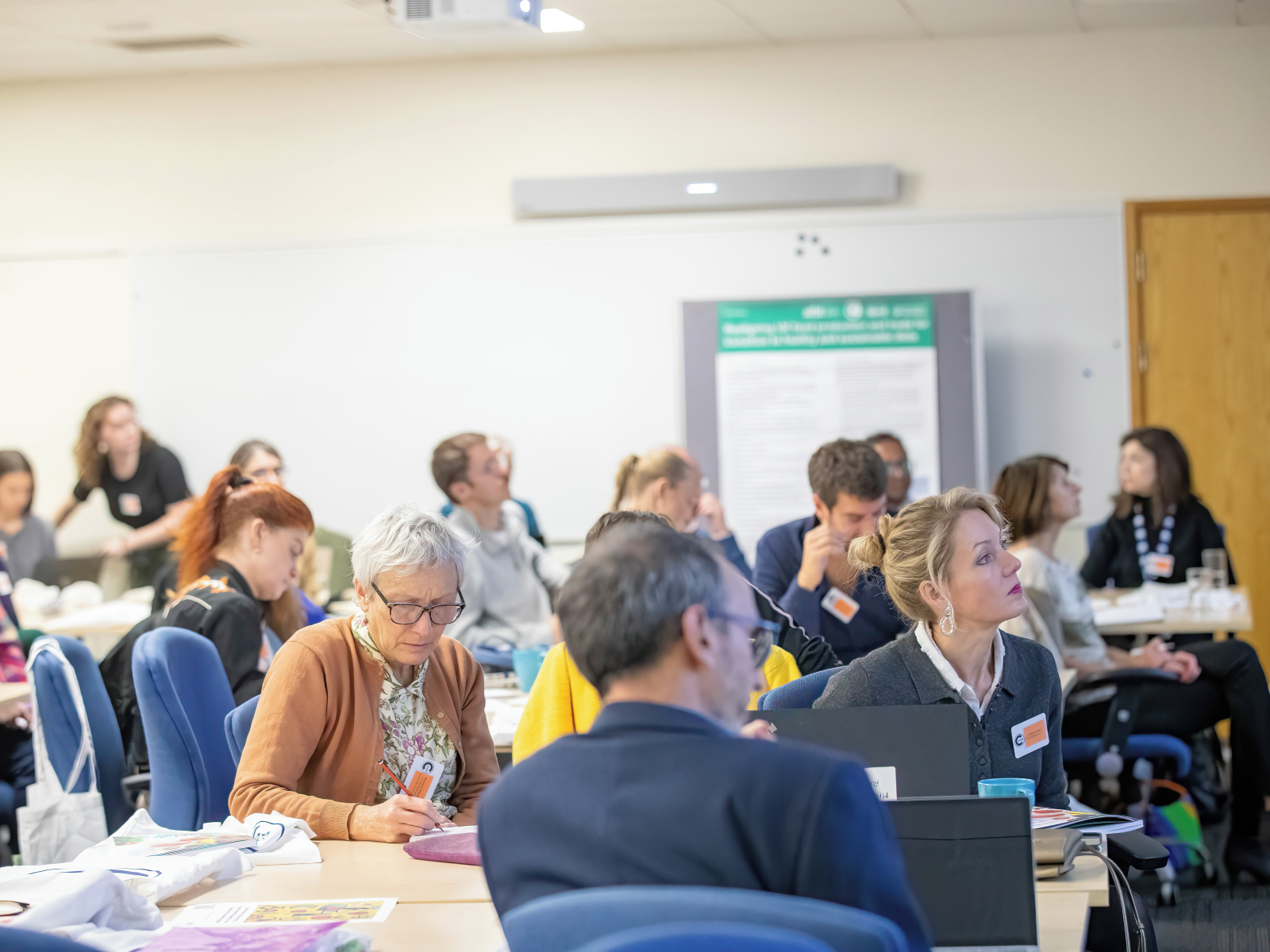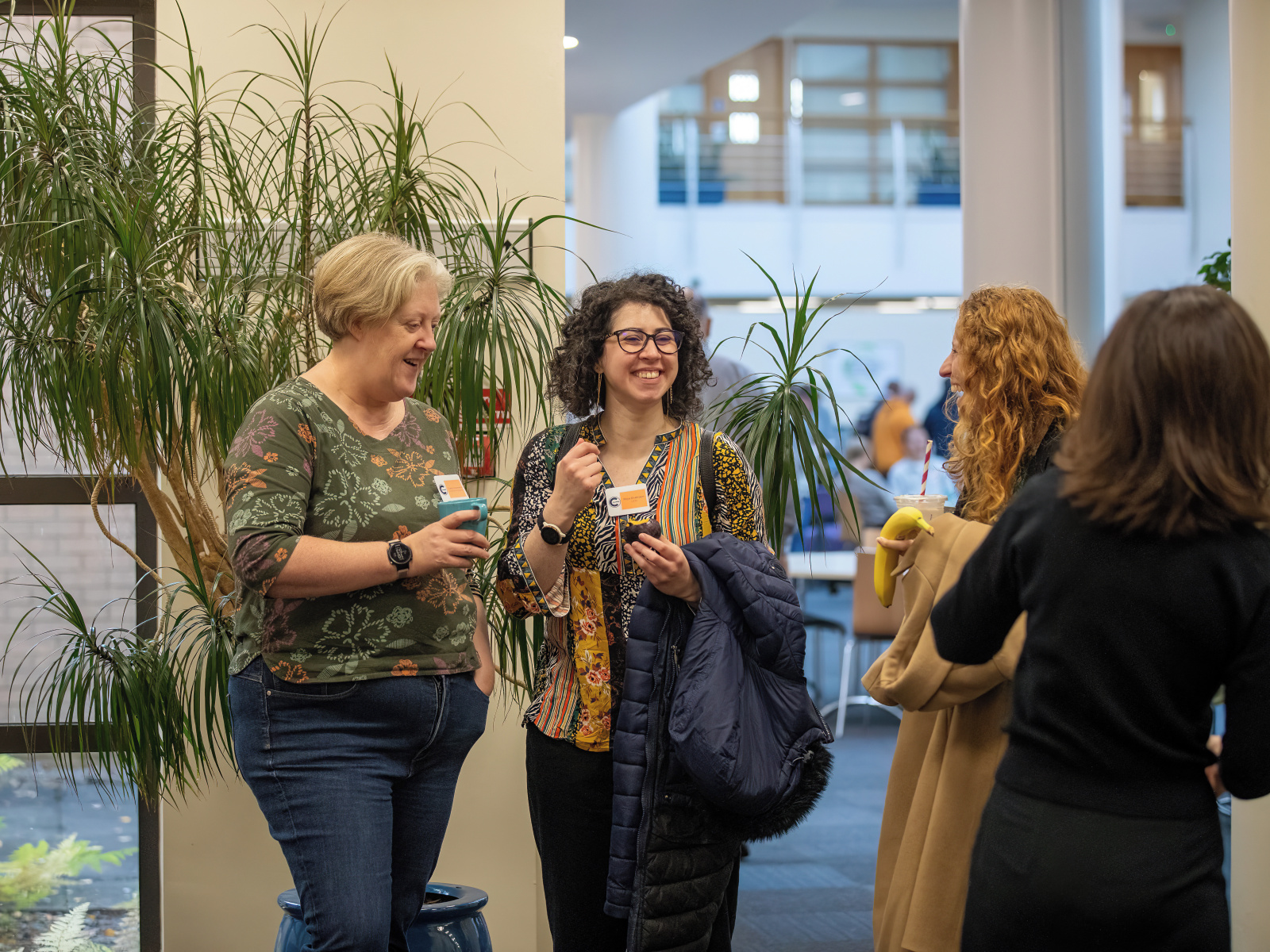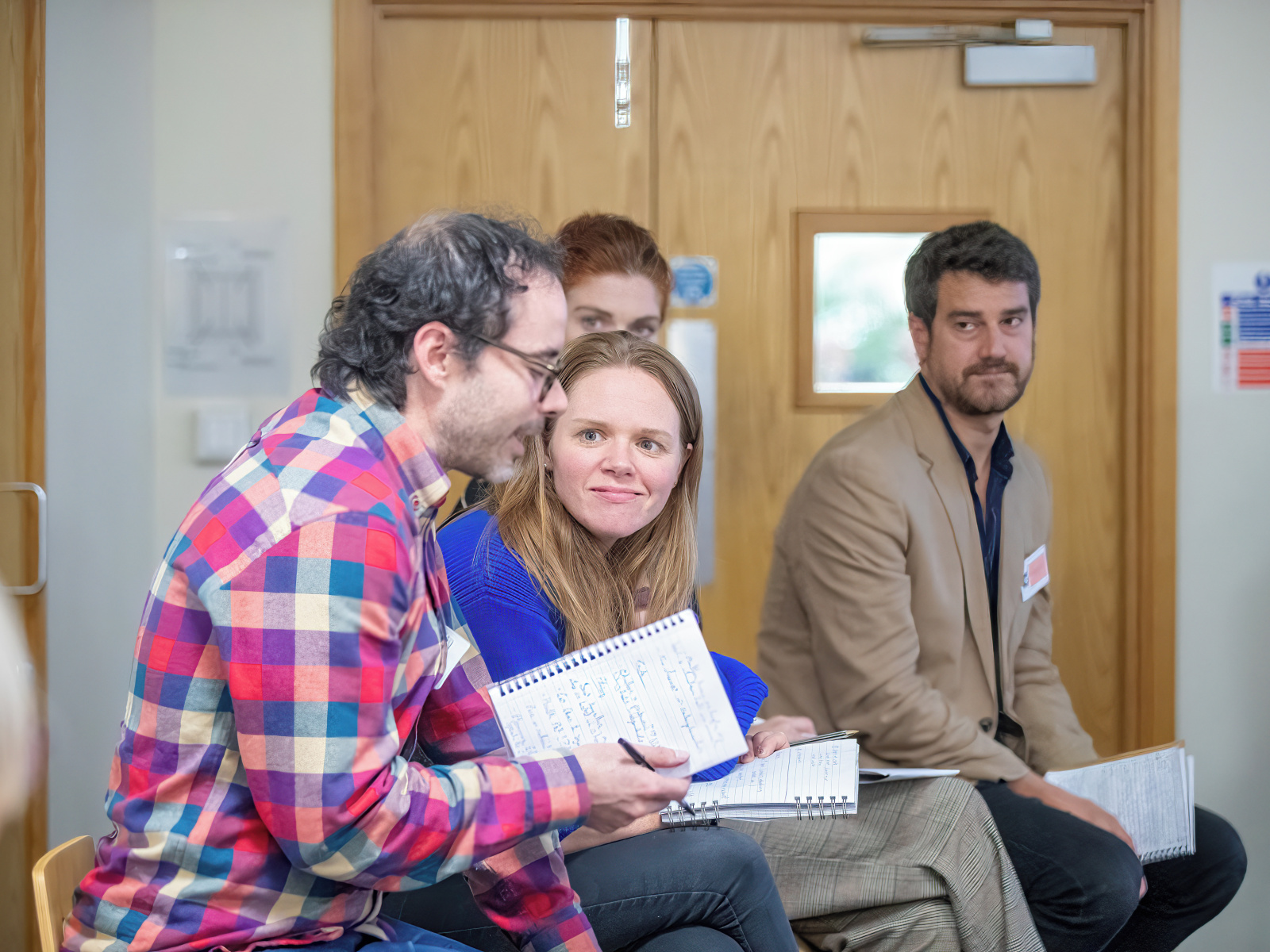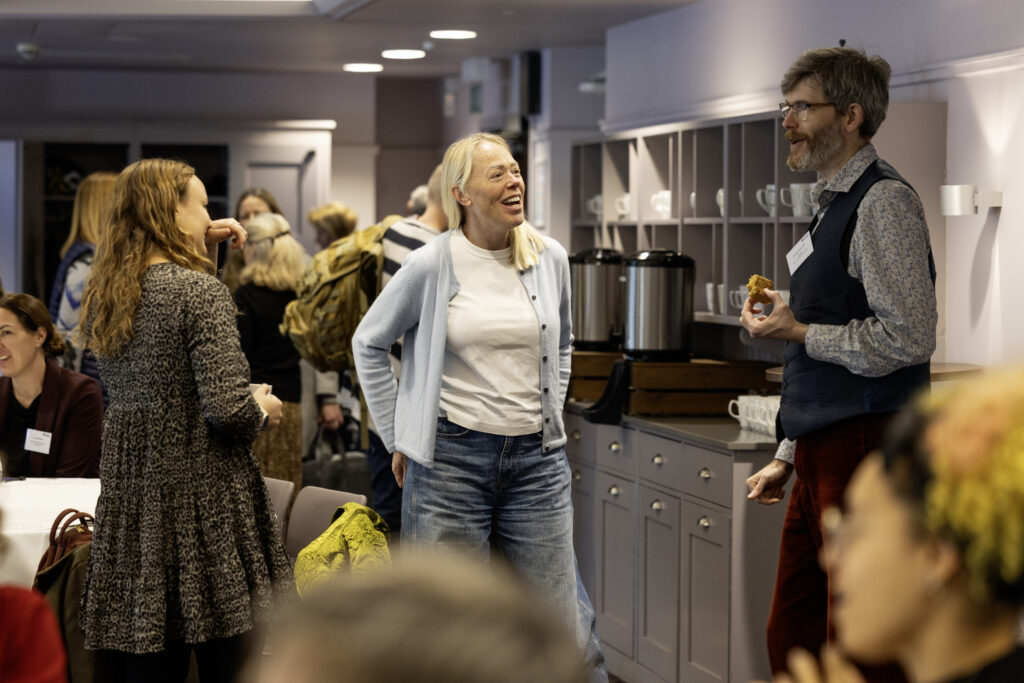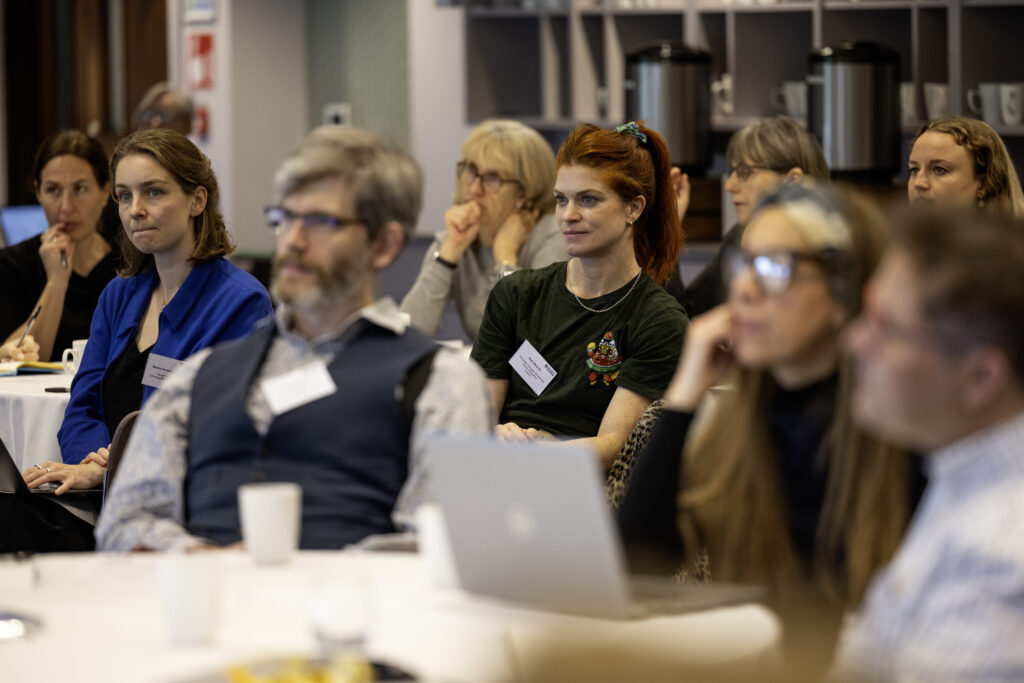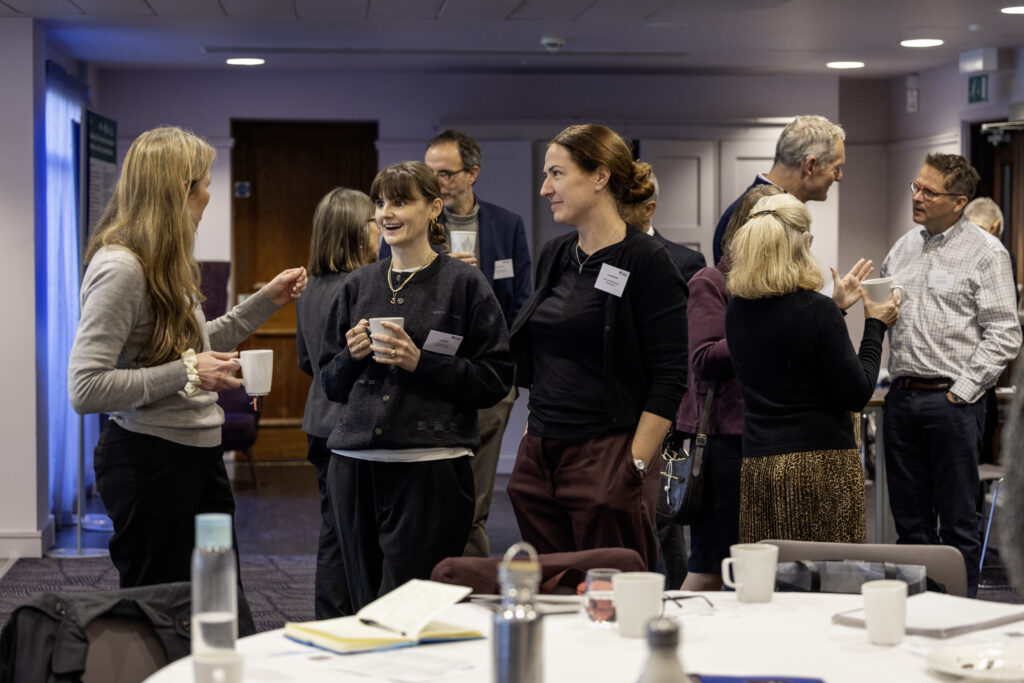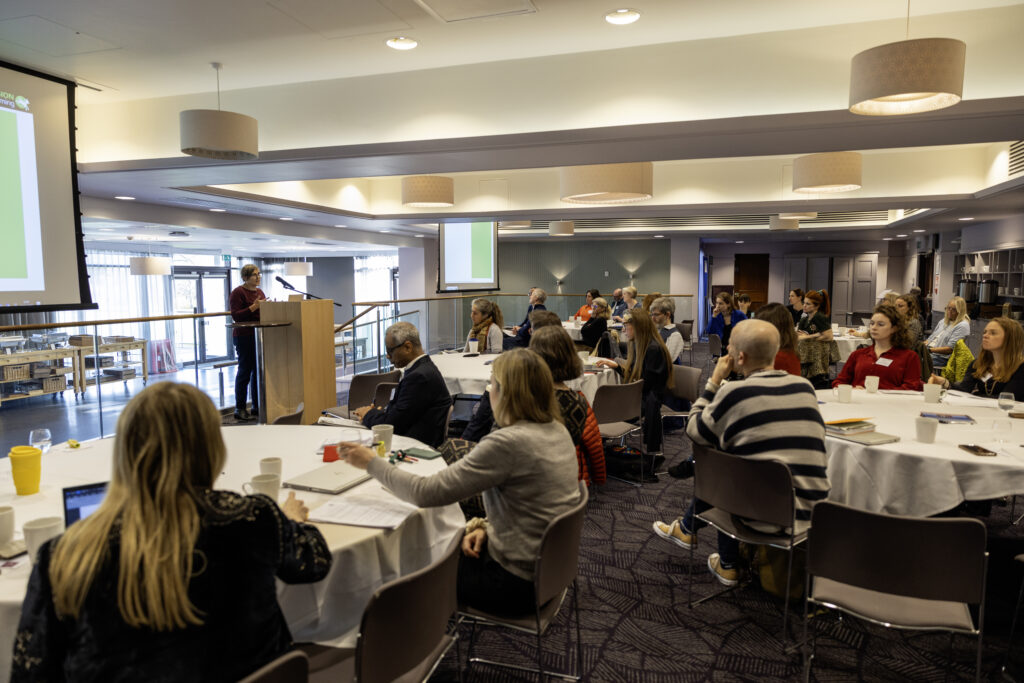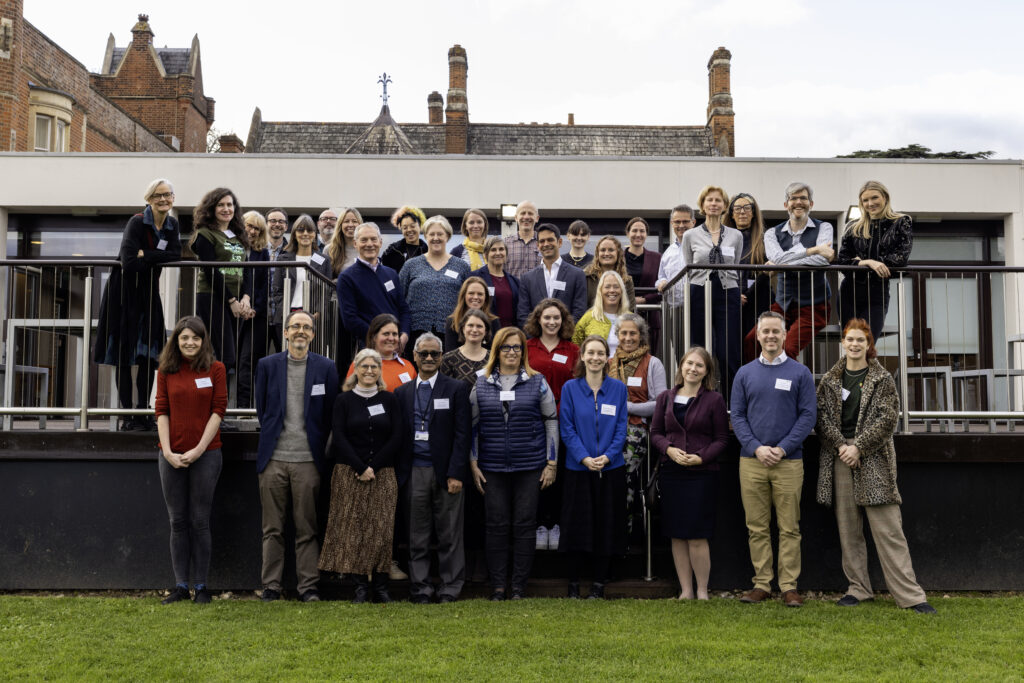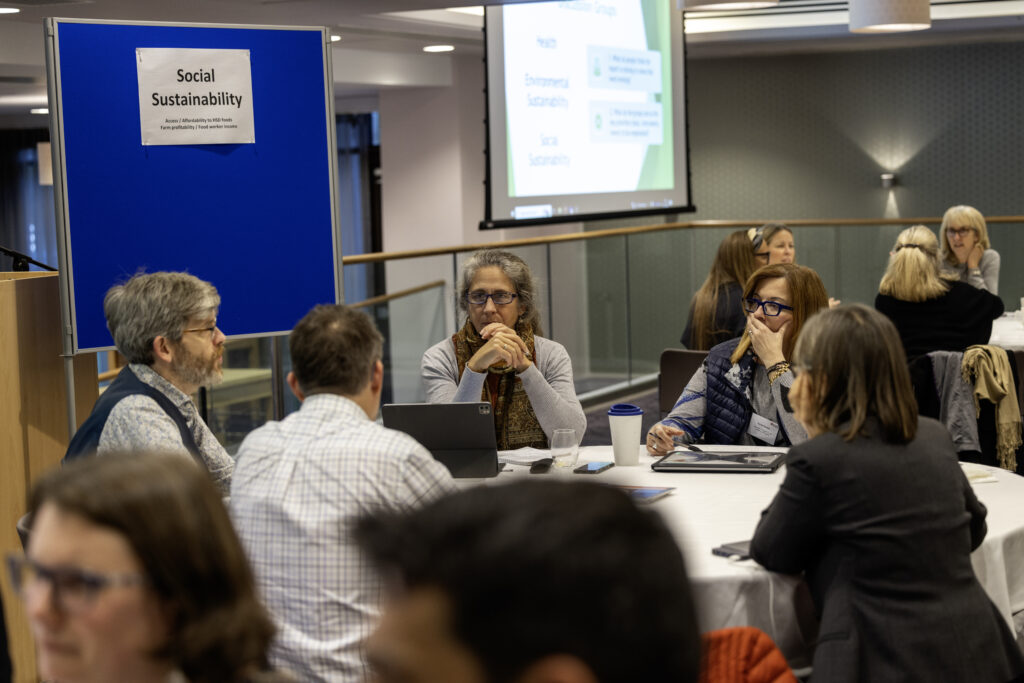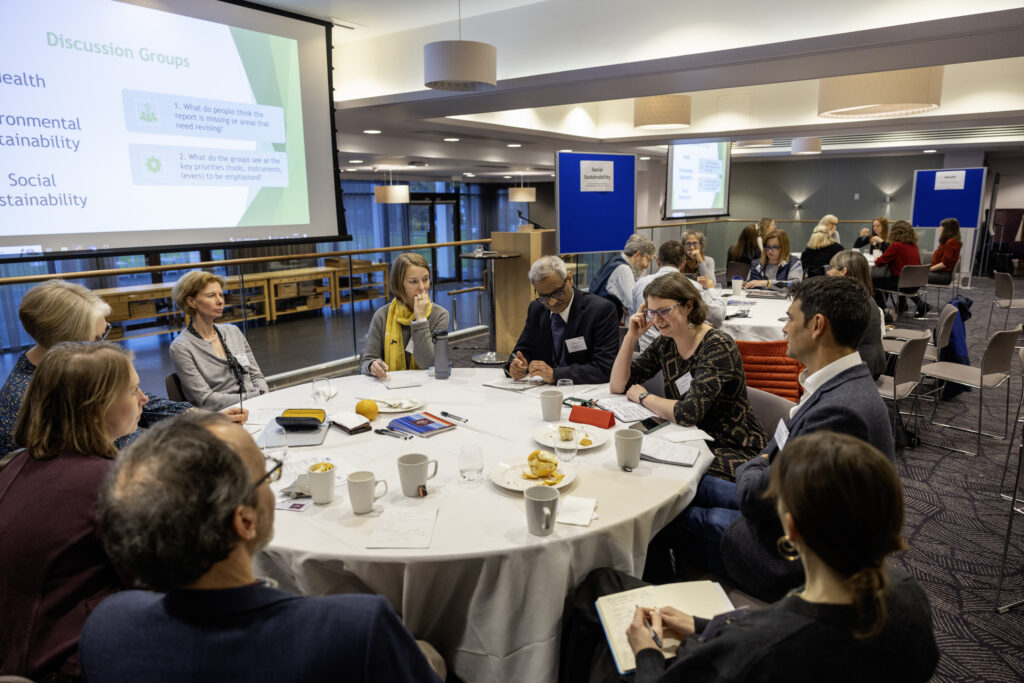Photo credit @ Cranfield University
Final Project Outcomes and Dissemination Event
Cranfield School of Management – 21st October 2025
‘Realigning UK Food Production and Trade for Transition to Healthy and Sustainable Diets’ held its Project End Dissemination Event on Tuesday 21st October 2025. The event was hosted by Cranfield University, one of the project partners, at the Cranfield Management Centre.
The agenda for The Final Project Outcomes and Dissemination event is available to view.
Around fifty delegates, representing a broad range of stakeholders across the various themes of the project, listened as the Project Team explained and shared the findings of the five linked Work Packages in the morning (see presentations below).
After lunch, the guest panel comprising: Ruth Westcott (Sustain), Hannah Brinsden (The Food Foundation), Brendan Costelloe (Soil Association), Andrew Furness (Foodbuy), and chaired by Prof Carol Wagstaff (University of Reading) invited feedback and key take-aways from the project findings. This then opened the floor to interesting discussion, prompted by questions from the audience. Project Investigator, Professor Srinivasan, said, “It was a very productive and enjoyable event.”
Whilst the UKRI-funded project comes to a close in December 2025, the conversation, around what’s required in UK food production and trade to make our diets more healthy and more sustainable, continues.
In-Person Workshop: Interventions to deliver a transformed food system
University of Reading – Thursday 14 November 2024
What regulatory policy levers does the UK need for it to transition to a healthy and sustainable diet? Stakeholders working in this space from the campaigning sector, academia, farming, and beyond, gathered at a workshop at the University of Reading on 14 November to discuss a draft report (‘Regulatory Tools for a Healthy and Sustainable Diet’) addressing this question.
Given the Labour Government’s wish to move to a more preventive approach to health, and Keir Starmer’s COP29 goal for the UK to reduce greenhouse gas emissions by at least 81% by 2035, the report is timely: the food system has an important role to play in achieving these goals. But, given the presence of other recent reports such as the House of Lords Food, Diet and Obesity Committee (‘Recipe for health: a plan to fix our broken food system’) and WRAP/IGD (‘Net Zero Transition Plan for the UK Food System’), what does the Reading report offer that’s different?
First, it is one of the few reports that attempts to provide a birds-eye view across both the health and sustainability aspects of diets and food systems. Most existing reports, like those above, tend to look at one or the other. However, with the potential for both synergies and trade-offs across the two fields, it is important to consider them in the round.
Second, it considers targets as a regulatory tool, exploring where these exist at present in the UK food system and also, importantly, where they are absent. As commentators at the workshop made clear, targets can be an important driver of government policy: not only do governments take them seriously, targets also tend to attract the necessary budget spending to ensure they are delivered.
Third, the report explores both supply-side and demand-side regulatory tools. Labelling for example, can be a useful tool to help shift consumer demand towards healthier and sustainable food products. However, it is not without its limitations, and supply side measures aimed at e.g. reducing livestock numbers, or the reformulation of food, may also be needed.
The workshop itself produced a range of important insights. One was the need for careful consideration of which actors from the food system are responsible for food system problems. Sometimes key actors (like the out of home sector, and lenders from financial services) don’t receive the attention that more visible actors like supermarkets and farmers receive. Tackling the UK’s food system problems requires all the actors in that system to share the responsibility.
Another insight was the need to avoid generalising about instrument choice. While most participants agreed that government policy in recent years had been excessively reliant on voluntary instruments (which had not only often been ineffective but had actively diverted attention from what was needed), the point was made that there are some examples where voluntary instruments have worked well, just as there are examples of mandatory measures that have failed. Lessons need to be learned from practice.
The food systems approach also raised some perhaps counterintuitive examples in discussion. With plastic packaging for example, removing it from fruit and veg and selling them loose is typically seen as positive for environmental sustainability. But what if the packaging contains useful advice on storage that leads to less food waste? And what if people eat more fruit because there are more in a plastic bag than they would have chosen individually? Similarly, what if including ruminant livestock farming in the UK emissions trading system (ETS) led to greater intensification, perhaps lowering carbon emissions, but at the cost of animal welfare and emissions to local air and water? A systems approach requires careful consideration of potential unintended consequences like these before taking action.
Finally, the event considered the nature of the transition being aimed for. The discussion suggested that the transition in the food sector was not necessarily quite as easy to identify as it is in other sectors like energy, with its transition to a renewables-based, decarbonised economy. However, in considering regulatory solutions, commentators made it clear that one first needs to think about what the transition here looks like. From an animal welfare perspective for example, a transition to a more regenerative system where farmed animals are back on the land looks very different to an approach that sees animal welfare as a bolt-on solution to improve intensive rearing practices.
Following the event, report authors Professor Chris Hilson, Professor Christine Riefa and Associate Professor Kyriaki Noussia, commented: “We were delighted that the workshop attracted such an impressive and diverse group of stakeholders. Not only did this help to make it such a stimulating day, but the range of voices will hopefully ensure that the final report enjoys wide credibility within the sector.”

